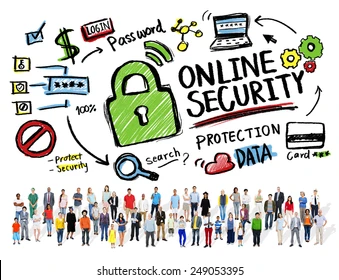In today’s digital age, the internet has become an integral part of our daily lives, offering many benefits. However, it also comes with its fair share of risks and dangers. While these threats can be concerning, with the proper precautions and knowledge, you can navigate the online world safely. In this comprehensive guide, we’ll explore some of the most significant internet dangers and how to protect yourself.
The Big Four: Common Internet Dangers
Malware and Viruses: The Silent Threat
Malware, a portmanteau of “malicious software,” is a digital menace specifically designed to wreak havoc on your computer and the software within it. Malware can take various forms, such as viruses, Trojans, ransomware, and spyware. These malicious programs can infiltrate your system, compromising your data security and privacy. They may steal sensitive information like credit card numbers and passwords or send fraudulent emails from your account without your knowledge. To safeguard your digital life, invest in reliable antivirus software, keep your operating system and applications updated, and exercise caution when downloading files from the internet.
Phishing and Scam Emails: Hook, Line, and Sinker
Phishing emails are deceptive messages crafted by cybercriminals to trick recipients into revealing personal information, such as usernames, passwords, or financial details. They often impersonate trustworthy entities like banks, government agencies, or popular online services. By clicking on links or downloading attachments from these emails, you may unwittingly compromise your sensitive data. To stay safe, be cautious when opening emails from unfamiliar sources, scrutinise the sender’s email address, and never click on suspicious links or download attachments unless you’re sure of their authenticity.
Fake Websites: A Web of Deceit
The internet is filled with deceptive websites created solely to defraud unsuspecting users. These fake websites mimic legitimate platforms to trick individuals into sharing personal or financial information. Users who fall for these schemes often face severe consequences. To avoid falling victim to such scams, always double-check the URLs of websites you visit, ensuring they are the official sites of the businesses or organisations they claim to represent. Additionally, look for security indicators, such as a padlock icon or “https” in the URL, which indicate a secure connection.
Online Scams: A Digital Minefield
Online scams encompass many cybercrimes, ranging from data hacking and phishing to OTP fraud and sextortion. Cybercriminals employ various techniques to steal money, privacy, and even personal images. One common ploy is the “sextortion” scam, where criminals threaten to release explicit photos or videos unless victims pay a ransom. Protecting yourself from online scams requires vigilance and scepticism. Never share personal or financial information over unsecured channels, and report any suspicious online activity to the appropriate authorities or organizations.
Staying Safe in the Digital Wilderness: Practical Tips
Now that you’re aware of the significant internet dangers let’s delve into some essential tips to protect yourself while using the internet:
Use Strong Passwords: The Digital Fortress
Your first line of defence against online threats is a robust and unique password. Ensure your passwords combine upper and lower-case letters, numbers, and special characters. Avoid using easily guessable information like birthdays or names. It’s also crucial to use different passwords for various online accounts. Consider using a reputable password manager to help you generate and securely store complex passwords.
Say No to Public Wi-Fi: The Temptation of Convenience
Public Wi-Fi networks are a convenient way to stay connected while on the go, but they can also be a breeding ground for hackers. These open networks lack the encryption and security of private connections, making your data vulnerable to interception. Whenever possible, avoid connecting to public Wi-Fi networks. If you must use them, consider a Virtual Private Network (VPN) to encrypt your internet traffic and protect your data from prying eyes.
Ignore Unnecessary Mails and Messages: The Art of Skepticism
Are you inundated with emails and messages? It’s crucial to differentiate between legitimate communication and potential threats. If you receive unsolicited emails or messages from unknown sources, exercise caution. Be especially wary of any letter requesting personal or financial information. When in doubt, it’s better to ignore or delete such messages. Remember, a healthy dose of skepticism can go a long way in preventing cyberattacks.
Educate Yourself: Knowledge is Power
The more you know about internet dangers and cybersecurity, the better equipped you’ll be to protect yourself. Stay informed about the latest online threats and best practices for online safety. Consider taking online courses or attending webinars on cybersecurity. Additionally, regularly update your devices and applications to patch vulnerabilities and enhance security.
Two-Factor Authentication (2FA): Double the Security
Enable two-factor authentication whenever possible. This additional layer of security requires you to enter a code sent to your mobile device or email after entering your password. Even if someone gains access to your password, they won’t be able to log in without the secondary code.
Backup Your Data: Prepare for the Worst
Regularly back up your important data to an external device or a secure cloud service. In a cyberattack or data loss, having a recent backup ensures you won’t lose valuable information.
Secure Your Social Media Profiles: Guarding Your Digital Footprint
Review your social media privacy settings and limit the personal information you share online. Cybercriminals often gather information from social media to craft convincing phishing attacks.
Beware of Suspicious Links: Think Before You Click
Never click on links in emails or messages from unknown sources. Hover over links to see the actual URL before clicking. Be cautious of shortened URLs, as they can hide the proper destination.
Use Reputable Security Software: Your Cyber Shield
Invest in reputable antivirus and anti-malware software to protect your devices. Regularly update this software to ensure you’re guarded against the latest threats.
In conclusion, the internet is a vast and powerful tool that, when used wisely, can enhance our lives in countless ways. By understanding the common internet dangers and implementing robust security measures, you can enjoy the benefits of the digital world without falling prey to its perils. Stay vigilant, stay informed, and protect your digital presence as you would your physical well-being. Your online safety is in your hands, and a little knowledge can go a long way in safeguarding your digital world




